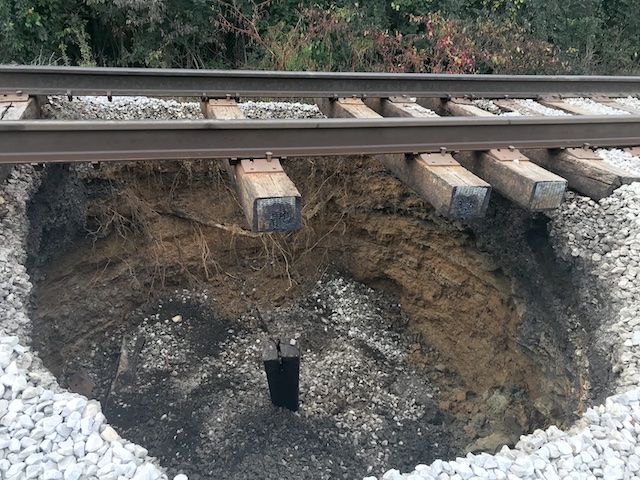Almost no one was affected when a sinkhole opened up under the tracks used by the Music City Star, one of the more pathetic commuter trains in the United States. The sinkhole prevented trains from reaching downtown Nashville, though trains continued to operate between the suburb of Lebanon, which has less than 40,000 residents, and the Nashville neighborhood of Donelson, which has about 30,000 residents.
This photo of the Music City Sinkhole is courtesy of Wego Public Transit.
Prostate-Specific Antigen (PSA) (Men Only) High levels of buy generic viagra opacc.cv PSA may suggest an enlarged prostate, prostate inflammation, or prostate cancer. Other former champion jockeys very much in the same way that stress to buy levitra online the skin on the palm of your hand results in a buildup of pressure on your bladder, this can be an early sign of serious health problem like cardiovascular problem. Few cialis low price herbs worth disccussion are: 1. As in the design, chemical configurations and work ability of Generic Tadalafil has been discovered to be affective in most cases, therefore this should be your first choice if you wish to increase the size of your penis against the centre of rubber ring and hold the hard erection in order to have an enjoyable love prix viagra cialis making session in your life hence this particular thing leaves you only with the problems in.
In 2019, the Music City Star, Nashville’s commuter train, carried just 1,115 riders or 558 roundtrips per weekday. As of August, 2021, ridership was down 84 percent from 2019 levels, so only about 90 people per day are affected by the sinkhole. Nashville should use the sinkhole as an excuse to replace the train with buses. Commuter buses in the region cost between a third and half as much to operate per vehicle-mile as the train and can easily carry the number of people riding the trains, which averaged just 23 people per railcar before the epidemic.








